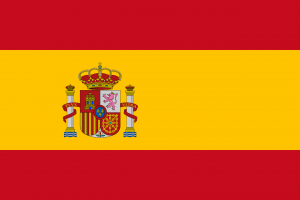Difference between revisions of "Language/Spanish/Vocabulary/Confusing-Expressions"
m (Vincent moved page Language/Spanish/Vocabulary/Misleading-Expressions to Language/Spanish/Vocabulary/Confusing-Expressions) |
|||
| Line 1: | Line 1: | ||
[[File:Spanish-Language-PolyglotClub.png|thumb]] | [[File:Spanish-Language-PolyglotClub.png|thumb]] | ||
<div style="font-size:300%">Spanish | <div style="font-size:300%">Spanish Confusing Expressions</div> | ||
Revision as of 21:03, 7 October 2021
Hi Spanish learners! 😀
I am Andrea and I am learning English.
I decided to start this wiki and keep working on it in order to improve my English writing abilities and teach you Spanish in the same time.
My native language is Spanish from Colombia.
On the PolyglotClub site, I have met several foreigners.
I noticed that sometimes, they get a little confused with some Spanish words because, sometimes, sometimes do not refer to the exact meaning of a word and the exact literal translation from Spanish to English can be confusing.
Here are several examples:
Ahorita
In spanish if you ask someone a favor like:
- ¿Podrías por favor hacer tu cama?
Could you please make your bed?
- "¿Podrías por favor ir a la tienda y traerme un poco de pan?
Could you please go to the store and bring me some bread?
The answer can be in Spanish:
- "¡Ahorita!".
It does not mean in English "now or instantly" but it means "ok I am going to do it... later...", you see the subtle difference?
Ya vengo
Another one is if I am talking with you and the conversation is going great and then and I say "ya vengo" and then I leave.
What would you think?
- did you say something wrong?
- maybe you feel like you have a bad breath ...
Maybe you don't know what has just happened but then you realize that I am coming back to see you while I say goodbye to another person.
I come back in front of you and continue the conversation just like if nothing had happened.
Let me explain, when I said "ya vengo" while I was having a conversation with you it meant that I had just seen someone that I know and Istopped the conversation. I then went to greet that person really quickly and then I went back to you.
This is quite a common thing to do, you can stop an activity that you are doing to greet someone or you can bring that person to the activity as well.
Cucha
"Cucha" is a way not very respectful to call your mom, but it is also a fish that you can have as a pet or that you can eat.
Personally I have never eaten a Cucha and I think I never will. 😎
In my house we had a Cucha for 9 years in an aquarium and also an Oscar.
The Cucha lived for 10 years but died 2 weeks ago.
So, well, I know that I will never eat an Oscar or Cucha.
With this type of words usually you can guess from the sentence context weither the person is talking about the fish or about their mother.
